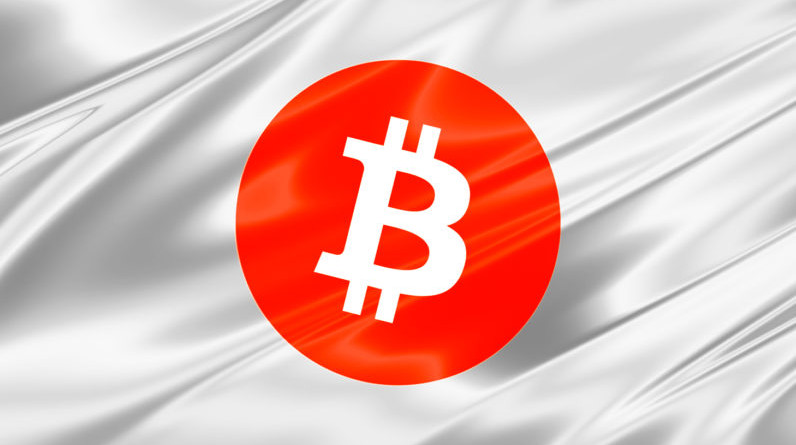WHERE COULD BITCOIN SUCCEED AS A CURRENCY? IN A FAILED STATE
Story by: Cady Voge
WHEN JUAN PINTO gets in line at the movie theater, he takes out his phone and trades just enough bitcoin for Venezuelan bolivars to pay for the ticket by the time he gets to the counter. Pinto lives in Venezuela, but doesn’t keep any of his money in the national currency. The 29-year-old quit his job as a mechanical engineer to dedicate his life to cryptocurrency three years ago, when he says he “fell in love with the technology.” Venezuela’s crumbling economy played a part as well. “Being a Venezuelan and living in the situation that I’m in, I was more willing to take some risks,” he tells me over Skype.
In the US, bitcoin is primarily a speculative investment, whose soaring price has been compared to a bubble. But in Venezuela, where inflation topped 2,616 percent last year, cryptocurrency is a way around restrictions on holding foreign currency, and in some cases, a means of survival. That’s made Venezuela an interesting laboratory for cryptocurrency serving as both a real currency and a viable means of storing value. As the government prints more bolivars, their value plummets; the government recently released a 100,000-bolivar note, currently worth less than 50 US cents at the black-market rate. Bitcoin holders, by contrast, have something most people don’t: a currency that’s worth something.
The national currency, officially called the “strong bolivar,” has lost 98 percent of its value against the dollar at the black-market rate in the last year, and the International Monetary Fund predicts that the country’s economy will shrink by 15 percent in 2018. Even President Nicolás Maduro’s government seemed to have lost confidence in the bolivar when last month it introduced a cryptocurrency of its own, the “petro.” Maduro says his digital money is backed by the country’s natural resources such as oil, gold, and diamonds.
The petro may be novel—a digital token centrally controlled by a government is ideologically at odds with the original idea for cryptocurrencies. Bitcoin relies on a ledger, called a blockchain, stored on millions of computers. By design, the currency, created in the wake of the 2008 financial crisis, is not owned or controlled by any single person, company, or government. Many Venezuelans who have turned to bitcoin and other cryptocurrencies in recent years have done so precisely because their government has nothing to do with it.
“Being a Venezuelan and living in the situation that I’m in, I was more willing to take some risks.”
Pinto started earning bitcoin in 2015 by mining it from his home, meaning his personal computer was continuously running software that works to solve complex math problems, which over time earns you fractions of the digital money. He still has six mining machines but he’s shipped them all to a business partner in China, for safety reasons.
The low cost of electricity in Venezuela makes the socialist country one of the most popular places to operate the energy-guzzling mining computers, but it’s also one of the most dangerous places to do so. Mining bitcoin from home is an easy way to earn extra money in Venezuela, but Pinto says that it also puts a target on your front door. Maduro’s government, which controls the electric utilities, has gotten hip to what exorbitant energy use in a single residence means. Authorities with information on energy use show up at homes and either confiscate the machines or extort the miners, and sometimes arrest and detain them as well. Pinto says he’s heard too many stories like this, and that for him, mining inside Venezuela is not worth it.
One Caracas software developer, who did not want to be named for security reasons, mines cryptocurrencies on five machines that he’s installed in the homes of five different friends. On average, the coins he’s mining yield a value of $300 to $500 per machine each month. He and other clever miners in Venezuela spread out their machines so there’s no detectable increase in their electricity use.
Some of the homes that host the developer’s machines are empty because the owners have fled the country. The homeowners collect up to 30 percent of the developer’s earnings, and the machines record electricity use, making it less likely their home, and belongings, will be seen as abandoned. In other words, mining in excess can put you at risk, but mining just the right amount can protect your home, and your possessions, from being stolen.
The developer says he has a good salary that he’s able to live on in Venezuela, so he says he no longer exchanges any of his cryptocurrency for bolivars. He’s holding on to his digital coins as investments. If he ever decides to emigrate, he won’t have to open a new bank account or send wire transfers to access his savings of cryptocurrencies.
John Villar is a computer engineer who lives in Caracas with his wife and three kids. In 2013 he realized that the fraction of a bitcoin he had mined two years earlier, just for fun, was worth $100. “With $100 you can live for a month like a king in Venezuela,” Villar laughs. He says he spends just $50 on groceries each month to feed his family of five.
Villar stopped mining about a year ago for the same reason that Pinto shipped his machines to China: He doesn’t want to live in fear. Now most of his income comes from “bounties,” solving complex coding bugs for companies such as Counterparty, which use blockchain technology. The first coder to fix the bug earns the bounty. He says he will collect 500 Counterparty tokens, worth roughly $6,500 at the moment, for his most recent code fix.
Villar lives very well by current Venezuelan standards, but says that much of his earnings go toward buying and shipping medicines for his wife, who has multiple sclerosis. Her medications haven’t been available in Venezuela for two years. In order to get those and other household supplies, Villar sells bitcoin for US dollars, buys the products online, and ships them to a company in the US that provides door-to-door delivery to his home in Venezuela.
Another Venezuelan, who works in the creative industry, entered the bitcoin economy in March 2017 when a client asked to pay in bitcoin. One bitcoin was worth around $1,000 then; it has since soared to roughly $8,500, making that project even more lucrative. Since then, this man has accepted payment on two other projects in bitcoin and started buying other cryptocurrencies and trading them in search of profits. But he doesn’t widely advertise that he accepts bitcoin because he doesn’t want people to know that he has some, again, for security reasons.
The creative worker was in his office in Caracas when I asked him what he thought the future held for the Venezuelan economy. He told me that from his desk he can see the street below, where people frequently rummage through the garbage for food; it’s rare, he says, to find a trash bag in the city that hasn’t been ripped open.
“It’s something really depressing,” he says, “and the proof of how bad we are as a country. There’s a lot of hunger, poverty, and I think it will be worse and worse with the passing of time.”
People with jobs that pay them in US dollars or other foreign or cryptocurrencies live in a different reality than those who are paid in bolivars.
Bitcoin holders have something most people don’t: a currency that’s worth something.
Pinto says he feels bad for people earning bolivars and trying to make ends meet, “I hear people complaining everytime I go to a grocery store or a restaurant about the prices like, ‘No, it’s impossible,’ about a meal that is $4, and that’s not a lot, but in Venezuela $4 is a lot of money.” The minimum wage in the country is currently hovering around $5 per month.
The site Pinto uses to instantly exchange bitcoin for bolivars is called LocalBitcoins, where buyers and sellers meet and negotiate their own exchange rate. That’s convenient in a country where the local currency’s value changes nearly every day.
Pinto started a business called Dr. Miner where he charges a one-time fee to install a single mining computer in a home. The owner doesn’t need to know anything about cryptography or even mining; the software runs on the machine and the owner can earn from $200 to $900 per month, he says. The machines generally cost $100 to $300.
Of his friends and family, Pinto says only about 10 percent are still in Venezuela. Most with the means to do so have left the country. His entire family is in Spain and he tells me that he will probably go there soon too. But for now he, like others who’ve stayed, must manage his family’s assets, and this too he is facilitating with cryptocurrency. When he discovered that a prospective renter for his father’s apartment in Caracas also had bitcoin, they agreed the renter would pay half of the deposit (six months rent) in bitcoin. After agreeing on the deal, the renter sent Pinto the bitcoin; Pinto then transferred it to his brother in Madrid, and his brother sold it on LocalBitcoins for euros. Pinto’s father had the rent money in his Spanish bank account within the hour, avoiding delays and fees of an international wire transfer.
The appeal of cryptocurrency in a sick country such as Venezuela is obvious, it takes away the need to trust the government and the banks, and puts some control in the hands of people living in a place of chaos. For now, bitcoin is mostly accessible to Venezuela’s middle and upper class, those with college degrees and often multiple passports or access to bank accounts outside of the country. But necessity is the mother of innovation, and perhaps, unlike most prior technological inventions, bitcoin will be driven into the mainstream by economies that are failing rather than thriving.
Original story: https://www.wired.com/story/where-could-bitcoin-succeed-as-a-currency-in-a-failed-state/


